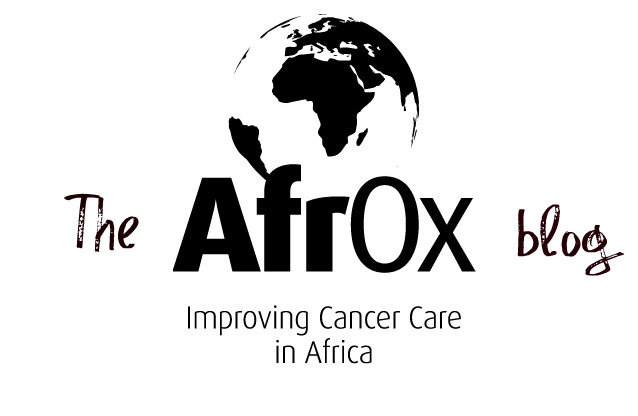In May, AfrOx ran a cancer nursing workshop in Malawi. Twenty-three nurses were trained, and four clinical officers and two doctors also participated in the workshop. Matron Loveness Nyirenda, the local coordinator, tells us about the importance of training nurses in Malawi...
Wednesday 22 June 2011
Tuesday 14 June 2011
Training Cancer Nurses in Malawi
In May, AfrOx ran a cancer nursing workshop in Malawi. Dr Ray Owen who works as an End of Life Counsellor was one of the trainers. He shares his experience with us...
I’m a clinical psychologist in the NHS, and for the last 18 years or so I’ve specialised in cancer and other serious physical conditions. Though a lot of my time is spent in face-to-face work with people with cancer and their families, I’m also very involved in teaching communication skills and psychological support skills to nurses, doctors and other staff who work in oncology.
I’m a clinical psychologist in the NHS, and for the last 18 years or so I’ve specialised in cancer and other serious physical conditions. Though a lot of my time is spent in face-to-face work with people with cancer and their families, I’m also very involved in teaching communication skills and psychological support skills to nurses, doctors and other staff who work in oncology.
When I was asked by Afrox to contribute to a training course for cancer nurses in Malawi and in Uganda, I was intrigued (and a little flattered!), but was initially doubtful how much the ideas and techniques that work in our own NHS would translate to a different culture, and to a drastically more resource-limited healthcare system.
Conversations with professionals already working out there, and now the days of experience with the wonderful Malawian nurses and doctors have convinced me my doubts were unfounded: these experienced and dedicated people are acutely aware of the importance of good communication and of providing psychological support.
I was fortunate enough to be teaching alongside Lynne Dodson, a fellow communication-skills trainer and highly experienced nurse. We quickly found that many of the approaches we’ve been working on in the UK
All of this of course is in the context of a poor country and a health system with few resources other than the dedication and compassion of staff making the best use of what the state (and foreign donors) contribute.
Every stage of diagnosis and treatment takes longer: just the lack of pathology services introduces a further 4 month delay in reaching a diagnosis – and any of us who have a had a family member undergo cancer tests knows just how stressful any wait can be.
Even the most basic cancer drugs can be unavailable, or only sometimes available, and way beyond the pocket of all but the very wealthiest; so distressing for the patient of a sick child.
The lack of any radiotherapy in Malawi means that very advanced and disfiguring tumours of a type we hardly see now in the UK
And, when someone needs to be in hospital, they have to have a ‘Guardian’; someone to deliver day to day care – washing, feeding, administering simple medicine which the tiny number of nurses on duty can’t possibly provide. Not only is that stressful for the Guardian, the impact of being far away from home can be destructive financially and to the rest of the family.
So many things need to change for all these problems to improve, but bit by bit they are already moving. And equipping the doctors with more skills and confidence is a vital part of that process. Hopefully, this is just the start for cancer nursing education in Malawi
Subscribe to:
Posts (Atom)
